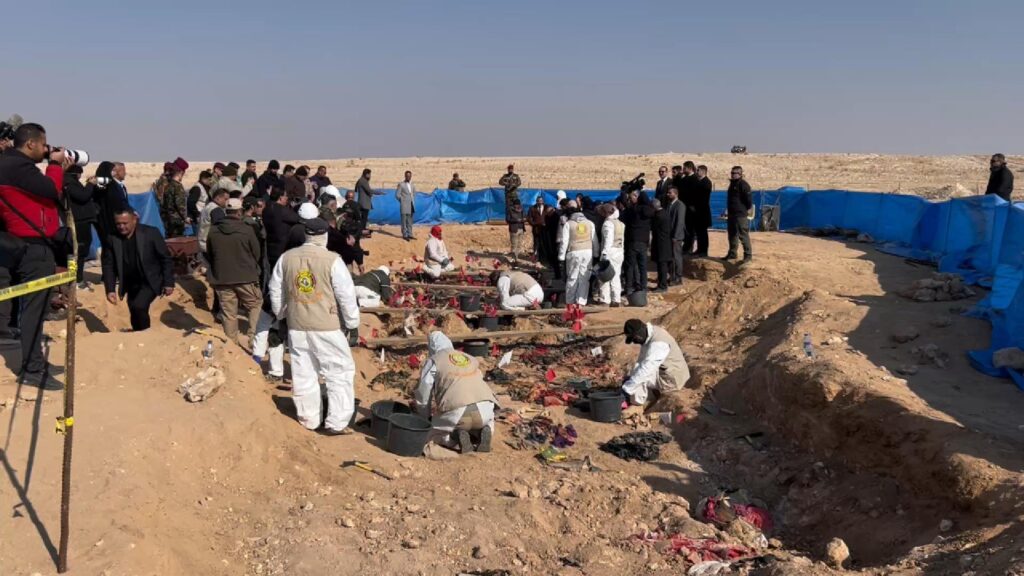US pressure on Iraq, Kurdistan no impact on trade with Tehran: Iranian official

“Despite repeated trips by American officials as well as economic and political delegations to Iraq and the Kurdistan Region in order to convince the Iraqi traders to abide by the American sanctions against Iran, there has been no sign that the Iraqi side has accepted these requests,” Iran’s Consul General to Sulaimani Saadullah Masudian told an Iranian outlet on Monday.
Since US President Donald Trump re-imposed wide-ranging sanctions in November after pulling out of the 2015 nuclear deal, an intense flurry of diplomatic activities have ensued between Baghdad and Tehran. Iranian President Hassan Rouhani who visited Iraq in March said that he hoped the trade volume with his western neighbor would reach $20 billion in the coming years.
The remarks by the Iranian diplomat come at a time that Washington has upped the ante by officially designating the IRGC as a terrorist organization, a move that came into effect yesterday. “The United States and President Trump will act lawfully,” remarked US Secretary of State Mike Pompeo on Monday when he was asked at a press conference in Dallas about whether the designation of the IRGC is a step closer to military action against Iran.
“He’ll act within his authorities. Article 2 gives broad powers, the AUMF gives a set of broad powers, but they are – we understand them. And as we make decisions about how to move forward, we’ll do so in a way that is deeply consistent with American tradition and America’s constitution,” added Pompeo.
The 2001 Authorization for the Use of Military Force (AUMF) passed by US Congress on September 14, 2001, authorizes the use of force against those responsible for September 11 attack and any associated forces. Pompeo, a trained lawyer, testified
before the Senate Foreign Relations Committee on April 10, stating that he saw a clear link between Iran and al-Qaeda. "The factual question with respect to Iran's connections to Al-Qaeda is very real. They have hosted al-Qaeda, they have permitted Al-Qaeda to transit their country…there is no doubt there is a connection between the Islamic Republic of Iran and al-Qaeda. Period, full stop," he replied to Senator Rand Paul, a Republican non-interventionist.
Since being enemies on their party’s campaign trail in the lead-up to the presidential nomination, Paul has become a confidante of Trump — especially on foreign policy decisions which could lead to more conflict in the Middle East.The re-imposition of the sanctions, in particular on its energy sector, has intensified a drive in Iran to increase its non-oil exports to neighboring countries and especially to Iraq which is reeling from three years of devastating war with ISIS. The Iranian rial has lost over 60 percent of its value since last summer, making commodities more affordable for Iraqi and other neighboring consumers.
The Iranian official in Sulaimani pointed out that the reason why the Americans have not succeeded in blocking trade between Iran and Iraq is because the Iraqi side is dependent on Iran for its basic commodities. “The obvious examples are the needs of the Iraqi bazaar for fruits, vegetables, dried food, and other Iranian food stuffs. If the exports are cut, the Iraqis would be the real losers,” Masudian told Kurdpress, an Iranian-funded outlet.
“The Iranian commercial and political representations in Iraq including the Consulate in Sulaimani are working towards increasing the trade volumes between Iran and the Kurdistan Region by 20 percent based on a focused and accurate plan,” he added.
The Kurdistan Region is an important trade corridor for other parts of Iraq. The only official border crossing, Ibrahim Khalil, between Iraq and Turkey is located in the Kurdistan Region’s western province of Duhok. Iraq’s only other options for imports other than Iran are costly air freight and lengthy sea routes to its port in Basra. Safety remains a concern for traders traveling by land from Saudi Arabia and Syria.

